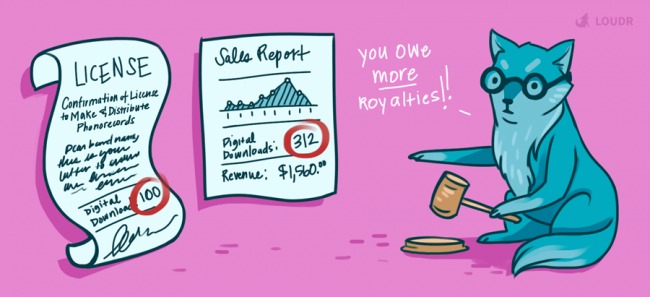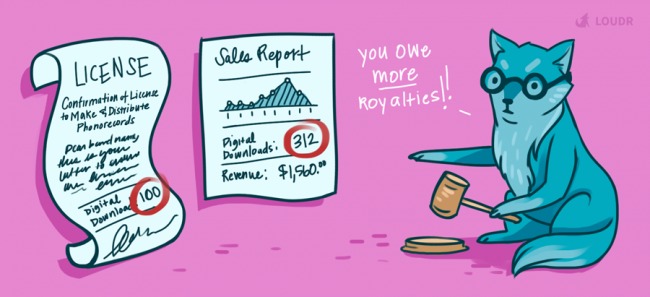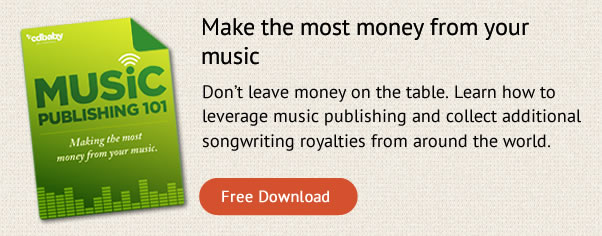How to get a cover song license, then LOSE IT for good
The importance of re-upping your mechanical licenses
It started out as a lark, the product of a late-night joke with your bandmates.
“Why don’t we bring the cassingle back?” you asked. “We could put out a cover of that Human League song — you know, the one about the waitress in the cocktail bar.”
Your bandmates agreed with you, so you recorded an alt-country cover of “Don’t You Want Me” in the basement home studio of your brother’s house. You found out what a J-card was (those paper inserts they put inside cassettes), then designed one for the single. You mixed the sessions, then mastered the mixes. You even went to a website that sells cover song licenses, like Loudr Licensing, to purchase and pay for the rights needed to legally sell your cover both as a cassingle and an iTunes single.
You probably thought that you were ready to put the project to bed after shipping the masters to the cassette duplication plant and clicking “Submit” on CD Baby. However, you only purchased a cover song license for 100 cassingles, the number of copies you made, and 200 digital downloads, the number of copies you expected to sell on iTunes. You may not have remembered or thought you needed to keep track of the numbers as fans continued to buy up the cassettes and rack up digital downloads, especially after BuzzFeed featured you in a listicle about great 80s covers.
A mechanical license, known also as a “cover song license,” gives the holder permission to create, make copies of, and sell or give away a recording of someone else’s song. That license comes from the person or music publishing company that owns the copyright to the song, and it comes with requirements that need to be followed. One of those requirements is to account to and pay the publisher for every last copy that is made, whether a digital download, vinyl record or cassingle. In the case of your Ryan Adams-inspired cover of “Don’t You Want Me”, that means paying additional royalties when you exceed the 200 digital downloads mark.
Of course, iTunes doesn’t come with a spigot that automatically turns the music off when you’ve exceeded royalties on your license. Not every rights holder can be aware of how many downloads that a mechanical licensee has sold at all times, and not every rights holder will take the time to track down the royalties every single time. But if a rights holder becomes aware of the existence of royalties (and your failure to pay those royalties), that rights holder can do a variety of things to make your life difficult, like:
* Terminate your mechanical license
* Come after you for unpaid royalties
* Prevent your distributor from paying you
* Cause your distributor to drop you
* Investigate whether you properly licensed or paid royalties for other cover songs, and
* Permanently deny you the ability to secure a new license for that particular cover recording, effectively silencing the music.
Consider a scenario in which sales of your cassingle lead to interest from a record label that wants to include the cover as part of a full album. Unfortunately, the music publisher becomes aware that you owe royalties (thanks to SoundScan), terminates your license, and threatens to sue you if you ever release your single again. The label loses interest after it discovers that the cover cannot be re-licensed. On top of all this, you can’t sleep at night because you feel bummed out about depriving your favorite British songwriters of all time, the members of the The Human League responsible for writing “Don’t You Want Me”, their well-deserved royalties.
While the prospect of licensing issues raised by commercial success might seem like a good problem to have, a problem is ultimately still a problem. Regardless of whether you use Loudr Licensing or another means of obtaining a cover song license, it’s a good idea to keep track of what you’ve sold and re-up your license when you’re close to the limit.
If cost is a concern, remember that many licensing providers will give you a hefty discount on service fees when you re-up an existing license, since the research has already been done. Set up a reminder in Google Calendar if you need to, and remember that the extra effort results in a cover song that your fans will love, regardless of whether the track comes out on a cassingle.
AUTHOR BIO: Annie Lin is senior counsel at Loudr. She’s also a former touring musician and CD Baby artist who has worked in music supervision and licensing for more than a decade. When she’s not working at Loudr, she can usually be found at a rock show or record store in San Francisco.
The post How to get a cover song license, then LOSE IT for good appeared first on DIY Musician Blog.
Source: Musician Resources



Leave a Reply
Want to join the discussion?Feel free to contribute!